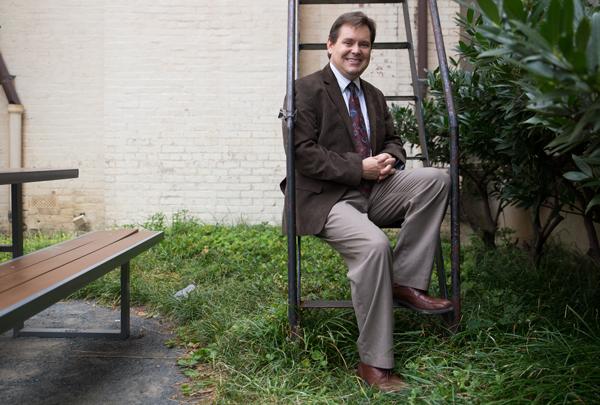Updated: Sept. 19, 2016 at 9:05 a.m.
A year and a half after major budget cuts hit GW’s music programs, students and faculty in the department say class structures and a student orchestra are encouraging students to pursue music.
The department has restructured its introductory course, which is open to non-majors and non-minors, to get around cuts that prevented students who weren’t affiliated with the department from taking private lessons. Despite budget restrictions, students and faculty said the new course and other opportunities for music students make them hopeful about the department’s future.
Robert Baker, the director of performance study in the music department, said the new class structure should convince some students to declare majors or minors in music. Although the cuts challenged the department at first, the new format has helped students and faculty remain optimistic about programs’ futures, Baker said.
“Everybody rallied,” Baker said. “They did, and they have, and they are working to their best in our new paradigm.”
Faculty look forward to the music department’s upcoming merger with the Corcoran School of the Arts and Design, Baker added. Programs in the Corcoran and in the Columbian College of Arts and Sciences are set to be completely merged by this summer.
“I think we did go through that difficult time, but I am staying in the game because I think there is a future,” Baker said.
Ben Vinson, the dean of the Columbian College of Arts and Sciences, said the school has continued to support the music department by hiring a full-time, tenure-track faculty member in collaborative piano and approving a future position in ethnomusicology, a field that focuses on cultural music.
Enrollment in the restructured, one-section introductory course is consistent with the class’ enrollment before the cuts, with about 35 to 40 students in the class, Vinson said. He added that the number of students studying music has increased — there were 11 declared music majors in 2015, up from six during the previous year, according to the University’s institutional research and planning office.
“I’m also pleased to see that band, orchestra, choir, jazz, chamber ensembles and individual students continue to shine in performance, and attendance at those performances remains on an upward trend,” Vinson said.
Budget cuts, which slashed 40 percent of the music department’s budget more than a year ago, left students and faculty complaining about GW’s lack of dedication to the arts. They organized a 24-hour protest concert, and prominent alumni spoke out in favor of saving the department.
Student groups affiliated with the music department have also found ways to cope with fewer faculty and less funding. For example, the GW Orchestra is now categorized as a student organization and is eligible for funding from the Student Association.
The group had its first elections for executive board positions this past spring, though it has technically been considered a student organization since the spring of 2015, members of the orchestra said. Students, including those who are not majoring or minoring in music, can still choose to enroll in orchestra as a class for up to two credits.
Although the orchestra is a new student organization, Nate Pasko, the chair of the Student Association’s finance committee, said it has been treated like other student organizations in the allocation process. But SA leaders may have to advise orchestra members on how to complete funding requests, he said.
“These organizations may not be quite as familiar with the SA’s financial processes as other, more established organizations,” Pasko said. “This simply means the newer orgs may require a bit more guidance when it comes to filling out budgetary and supplemental allocation requests.”
The SA finance committee’s guidelines guarantee new student organizations at least $150 in funding during the first years of the group’s existence.
Diana Abdurakhmanova, the president of the orchestra, said being classified as a student organization adds a new layer of fiscal responsibility for members. She said members are addressing these changes by adding dues and planning T-shirt and bake sales.
“We have to be responsible semester to semester like any other student organization would have to be. It’s something that we have to do, and so far we’ve handled that pretty well,” Abdurakhmanova said.
Although students said things are going well now, the department struggled after the band and orchestra director Benno Fritz unexpectedly passed away in February. Robert Birch replaced Fritz as interim band director, and Scott Wood has taken over the orchestra.
Wood declined a request for interview.
“There was definitely more than a couple bumps in the road,” Abdurakhmanova said. “But just with the start of this semester there’s been a large group of freshmen that we’ve been able to attract. The numbers are growing this year, despite everything that has been going on.”
Claude Su, a sophomore and first violinist, said that although he was not at GW at the time of the cuts, he has noticed an increase students interested in orchestra. Su is “enthusiastic” about the direction the orchestra is taking and is looking forward to working with the new director, he said.
“The orchestra can continue to be a place where musicians who want to enjoy music, and enjoy playing music within a larger group, can enjoy music together,” Su said.
This post was updated to reflect the following correction:
The Hatchet incorrectly identified A. Scott Wood as Robert Baker in the photo caption. We regret this error.








